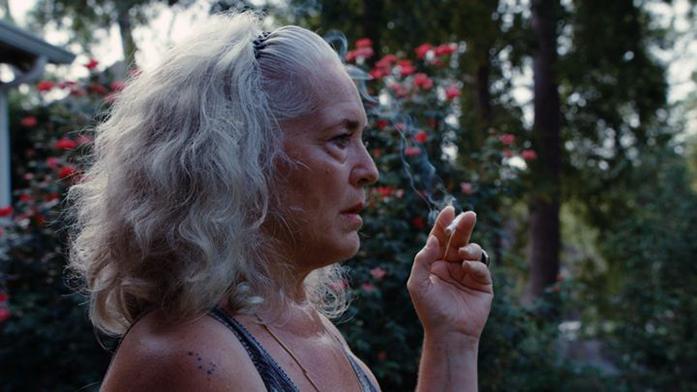Trey Edward Shults’s directorial début Krisha sees the filmmaker positioning his own family at the center of this unsettling tale of addiction, chaos, and humanity that strikes — quite literally for Shults — frighteningly close to home.
The movie, opening today at FilmScene, 118 E. College St., follows the return of Krisha Fairchild — played by Krisha Fairchild, the filmmaker’s aunt — a longtime drug addict and alcoholic whose turbulent past has weighed heavily on the relationships with her family. We join the family on Thanksgiving, as everyone is hectically buzzing around the house making last-minute preparations for the day’s festivities.
At first, Krisha’s presence is treated almost as if it wasn’t anything out of the ordinary. The regular holiday small talk is made among her and the rest of the family, and everyone seems to be happy — if not tentatively so — that she made an appearance.
It is only after some time that it becomes obvious that a darker subtext is beginning to reveal itself. The fabric begins to unravel when a bottle of wine goes missing and all eyes turn, unsurprisingly, to Krisha. If the wine is a poorly disguised device through which Shults allows himself to confront the movie’s primary tensions, it is excusably so.
The rest of the film plays out in the rarely explored gray area among anger, mistrust, and compassion. It is apparent that Krisha’s appearance at Thanksgiving is her way of trying to make amends with her family, but it is understandably difficult for her relatives to accept that gesture in earnest.
The film’s cast — Fairchild, in particular — does an incredible job of navigating the uncomfortable interstices present in every family dynamic. While Krisha might represent an extreme that not all of us will or can ever experience with our own families, it nonetheless raises some of the fundamental questions we have all encountered. How differently do we treat unacceptable behavior if it is carried out by one of our loved ones? Where do we draw the line between forgiveness and reproach?
One of the underlying problems with crafting a work that is “based on true events,” as theatrical trailers so readily proclaim, is that the adaptation will never pair up to reality in the eyes of the actual people whom the story concerns.
As we saw most recently with the extremely successful and equally divisive “American Crime Story: the People v. OJ Simpson,” no matter how exact the creators attempt to be, they will always step on somebody’s toes.
One of the many extraordinary things about Krisha is that by casting his own family members to play themselves in a story based almost completely on reality, Shults manages to almost completely skirt the edges of this problem that has plagued filmmakers and showrunners alike since the emergence of the medium.
In both form and content, Krisha is a unique films and is a must-see for movie-lovers of all pedigrees.










